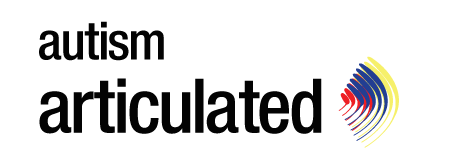Meet Dotun Akande & Patrick
/In Nigeria, Dotun Akande founded the Patrick Speech and Language Centre after years of frustration searching for resources for her autistic son. Learn more about the powerful campaign she leads for autism awareness.
Tell us about yourself, and your son, Patrick.
My name is Dotun Akande. I am a Nigerian from a family of six children. I studied economics and started off my career in a bank. I am married to my best friend and together we have three lovely children. When our son was diagnosed with autism at the age of two there was no centre available in the country that catered or understood the needs of a child with autism. We resolved to working with him with the help of his class teacher and a speech and language therapist. We asked the teacher to please work with him for an extra hour after school to provide him one-on-one tutoring while the speech therapist worked with him at home for another hour. When slowly our son began to emerge from his withdrawn self, we then added music therapy to his schedule and viola!!! His story changed. He started to use single words to request for his immediate need. I then had his younger brother and this further helped him to develop more vocabulary. He still struggled with self-help skills as well as expressive language.
By the time he got to the age of ten, it was obvious that his interest was in the maths and the sciences while he continued to struggle with English composition and comprehension. He eventually caught up with this skill in eighth grade and came out top of his year in mathematics and physics in his final year.
You created the Patrick Speech and Language Centre (pslc) in 2006. How did PSLC come to be?
When Patrick turned eight, and I saw that he was slowly emerging, I decided to set up a centre for others that would have been struggling to understand what was wrong with their child with autism. Because of the stigma and shame attached to disability in Africa, many families were suffering in silence — with most of them going to their spiritual fathers to ward off the spiritual attack the enemy has plagued their child with. After the centre was set up in 2006, we had a barrage of enquiries and with the knowledge gained from my training sessions in both the UK and the USA, we started therapy with the children and what a success we recorded. Many of our children soon got better and we were able to integrate them into the mainstream setting. Some as we know are still recovering but the beauty is that we see a little bit of each one of them emerge on a daily basis.
What do you see as the biggest challenge to autism awareness in Nigeria?
The biggest challenge of autism awareness, as we all can guess, is funding. We need a lot of money to get this awareness underway. In our own case, we collaborated with GTBank to show the community that our children have great talents that can be modified to help them reach their full potential. Every child has a potential and we must not give up when it seems slow reaching these potentials.
Another challenge is acceptance. Some families still find it difficult to accept that there is something wrong with their children. This can be very frustrating. When they can no longer cope with the increasing challenges faced by their children, they will then bring them to us at a later age when therapy can do very little. As we know with most disorders, early intervention is important in therapy. We also need to educate the public on how to manage these children and sometimes we get resistance from the community, as they don’t want to associate with something that is different from the norm.
What eye-opening lesson have you learned as a leader at PSLC?
The most important lesson I have learned is to love these children unconditionally and don’t give up on them. They have a great mind and this only emerges with unending love and patience.
What advice do you have for parents with children on the autism spectrum?
They should never give up on our children. They need to look beyond the challenges and find the child. When you are able to reach that child the challenges can be worked on.
You have such powerful and optimistic leadership for autism awareness, so we have to ask, who inspires you?
My husband inspires me. He is always calm. No situation is insurmountable before him. He taught me to never give up.






